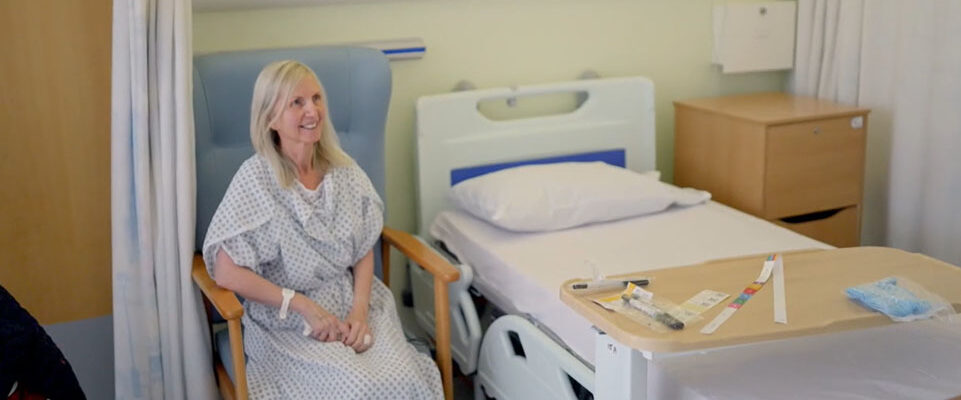Sixty-three-year-old Susan has a condition called trigeminal neuralgia, which causes extreme facial.
She was diagnosed with the condition three years ago, and it has had a huge impact on her life: “I worked for the NHS all my life, and then I took early retirement and so I started singing.”
Recently, Susan has had to stop performing as the pain in her face has become so debilitating. She needs surgery to be able to sing again – a procedure she describes as ‘life saving’.
The trigeminal nerve provides sensation the forehead, the cheek and just over the jaw line. Susan’s vessel is irritating the nerve causing this facial pain, Akbar adds: “I cannot imagine living with that pain all your life, scared to open your mouth or even talk, because if you did you would get this electric shock going into your face.”
Akbar hopes to go in through Susan’s ear to move the trigeminal nerve so it is not irritated by the vessel.
During the operation, he will use inoperative monitoring to make sure he is not damaging Susan’s hearing.
If Akbar doesn’t get the operation right, he could damage the hearing in Susan’s only working ear. He explains: “There is a massive chance that if something were to go wrong, that I can make the patient deaf and ruin her quality of life.”
The plan is to move the vessel that is pressing on a nerve in Susan’s brain, which is causing disabling facial pain. As Akbar explains: “The tricky part of this operation is getting into that area, that area is quite tight and if we get a bleeding from there, we need to control it as fast as possible because if we don’t, she can bleed out quite quicky.”
Akbar will then manipulate the nerve and vessel, being careful to not cause any damage to Susan’s hearing. Susan adds: “Since being a little girl, I have been completely deaf on my right side – there is no hearing at all there. So, if I was to lose my hearing on this side, obviously it would be life changing.”
Using inoperative monitoring, Akbar and his team will monitor any potential damage caused to Susan’s hearing using a series of needles in Susan’s face and wires.
Akbar explains: “Neurophysiologists are monitoring the brains responses, there is a time scale of about a minute. If there is any significant deficit in transmission of messages through this nerve, I have about a minute to adjust what I am doing.”
The first challenge is accessing the nerve. Akbar begins to drill through Susan’s skull. He works his way through the brain, taking great care not to disturb the area too much. Akbar will have to do this delicately, as to not put too much traction on the brain.
After 18 minutes, Akbar finds the problem. Every move he now makes must be precise. The smallest mistake could be life changing for Susan. Akbar adds: “My actual manipulation of this vessel is very small. Too much traction on this vessel will cause her permanent hearing problems.”
Akbar has successfully found the vessel inside Susan’s brain that is resting upon the trigeminal nerve causing pain and now he must move it to one side.
Every movement pulls on Susan’s brain, too much traction could make Susan deaf.
Akbar has neurophysiologists by his side, to alert him if the surgery begins to cause damage. As Akbar manipulates the nerve, the neurophysiologists will give a ‘ping’ into Susan’s ear, to identify any latency, which may cause significant damage to Susan’s hearing.
Akbar adds: “The slightest bit one way and I am poking the brain stem and can cause a deficit. The slightest way the other way I cause hearing loss – you are moving within a space of 5 or 6 millimetres.”
Confident the vessel is no longer irritating the nerve and he has avoided any damage, Akbar starts his retreat.
Following surgery, Susan’s sharp pain reduced, but she needs further treatment. It hasn’t stopped her singing with her husband, Brian.
